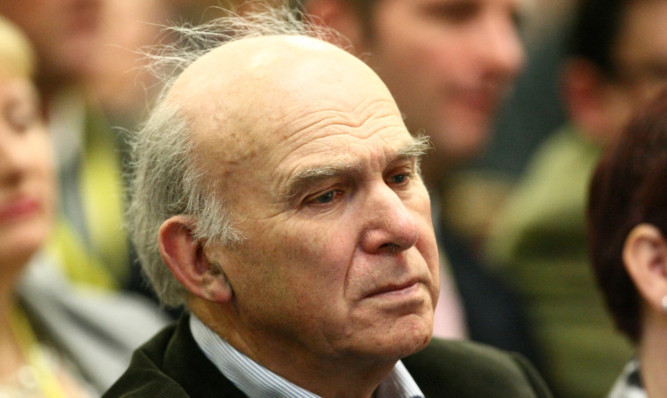Independence will “destabilise enterprise and potentially put jobs at risk” by breaking up the UK’s single market, Business Secretary Vince Cable has said.
The UK Government’s latest analysis paper on the impact of a Yes vote in 2014 says the move would create barriers which could negatively affect trade with the rest of the UK.
It said these barriers could also damage the prospects of the rest of the UK, for whom Scotland is currently the second largest market.
Deputy First Minister Nicola Sturgeon dismissed the analysis as “seriously flawed” and called on the Business Secretary to withdraw it.
The paper also states that joining the European Union (EU) post-independence would not compensate for the loss of a single market within the UK, in which there are no barriers to the flow of goods, services, capital and people.
He said: “The union works for businesses on both sides of the border.
“Scotland is famous for its world-class products and enterprising spirit – and the UK’s truly free, integrated and growing market helps Scottish firms exploit these to the full.
“As the economy starts to heal, now is the time to focus on renewed opportunities to do business. The last thing firms need is a new set of rules and regulations, new costs on exports, a smaller labour market and less reliable support for innovation and knowledge transfer.
“Breaking up Scotland’s most lucrative market would destabilise enterprise and potentially put growth and jobs at risk.
“My message to the Scottish business community is that we’re stronger and more secure together.”
Scottish exports to the rest of the UK totalled £45.5 billion in 2011 (excluding oil and gas), double the levels exported to the rest of the world and four times as much as to the rest of the EU.
The UK Government says that under independence Scottish firms would have reduced access to the UK single market, extra administrative burdens for cross-border trade with the UK, different sets of business regulations on either side of the border, and tax and pension complications for individuals working on both sides of the border.
Its latest analysis also covers the impact of independence on shared UK institutions, communications and transport networks.
It suggests Scottish hauliers could be penalised for driving in the rest of the UK after independence while mobile phone users may incur additional roaming charges if they use their devices south of the border. The cost of postal services could also be affected.
Ms Sturgeon said: “The latest claims from the UK Government have been shown to be misleading and inaccurate – this paper must be withdrawn.
“It is time for those in charge of this department to commit to higher standards in the material being published and ensure Project Fear has no place in government.
“It is incumbent on all UK Government departments to ensure that material they publish sets out the position Scotland would be in if we stick with the status quo in 2016.
“Any objective analysis must acknowledge that roaming charges will have been abolished and the only risk of them being reintroduced is if the UK decides to leave the EU.
“If publication goes ahead there is a danger the UK Government will be seen as just another wing of the No campaign’s Project Fear.”
